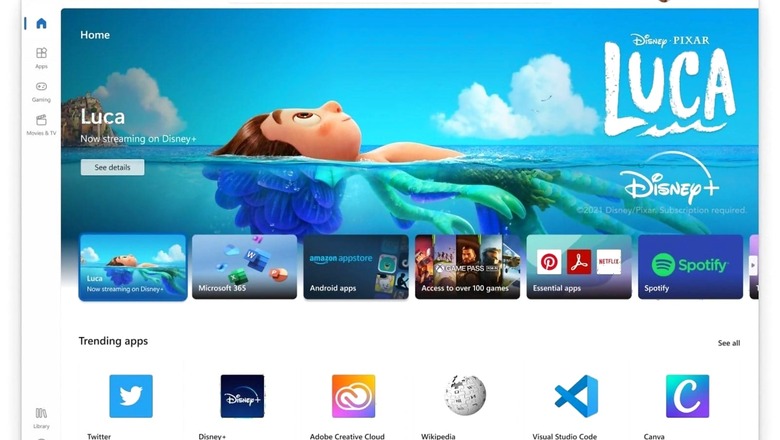
views
It is not old wine in a new bottle. Neither is it just a fresh coat of paint and papering over time induced wear and tear. For Microsoft, Windows 11 is much more serious than what a traditional generational update for an operating system would be. Already called “one of the most significant updates of Windows of the past decade” by none other than Microsoft chief Satya Nadella and following through from Windows 10 which released in 2015, there is no doubt that Windows 11 will arrive in a world that’s much changed. Not only does that mean Windows itself needs to evolve, but that’ll be driven by Microsoft’s willingness to not only keep up with what the likes of Apple and Google are doing, but also completely change the way a few things are done. They’ve done it before with the Windows as a service Windows 10.
And Microsoft seems primed to do it again. Developer revenue and the share that app stores take from each sale on the platform, has been under scrutiny for a while now. Apple and Google have been in the dock time and again, for the fees that take as a cut. So much so that while there has been slight movement for the better, it’s been just that. Late last year, Apple said that they will charge only 15% App Store cut from smaller developers on the App Store for the iPhone, iPad, Apple Watch and Macs. This has been defined as those developers who earn less than $1 million in annual sales per years from the apps they list. Apple and Google charge a standard 30% fee for all sales done on the App Store and Play Store respectively, barring a few exceptions based on criteria.
Microsoft has surprisingly flown below the turbulence, even though they’ve also charged a 30% cut from sales on the Windows Store for Windows 10 PCs, all this while. Yet, from August 1, they will be charging just 12% cut, in what is an attempt to compete with gaming platforms including Steam, while also get more developers on-side as Windows 11 rolls into town. “A clear, no-strings-attached revenue share means developers can bring more games to more players and find greater commercial success from doing so,” Matt Booty, head of Xbox Game Studios at Microsoft, had said at the time. With Windows 11, things are set to turn on their head. And will no doubt create a problem for Apple and Google.
With Windows 11, app and game developers who list their apps on the Windows Store will be able to completely bypass the payments system completely and keep all the revenue earned for themselves—if they have their own ecommerce engine to handle payments. Android apps will also arrive on the Microsoft Store, and Amazon is helping out with that one. The caveat—this new revenue option doesn’t apply to games. At least not yet. There’s a reason why there is a difference between apps and games, in Microsoft’s world. Games are a big source of revenue for Microsoft. The company had testified during the Epic trial that they sell the Xbox gaming consoles at a loss and rely heavily on the 30% cut from game sales as well as subscriptions including Xbox Game Pass to make up.
Revenue is something Microsoft will be eyeing in bucketloads from the Windows 365 Cloud PC service, which allows enterprises to get their employees access to Windows 10 and subsequently Windows 11 on the cloud, for subscriptions starting $20 per month. In India, the Basic plan for Windows 365 Business will cost Rs 1,555 per month per user, accessible via most modern web browsers including Microsoft Edge, Google Chrome, Mozilla Firefox and Apple Safari. You can configure this for an equivalent of single vCPU, 2GB RAM and 64GB storage as a minimum requirement, and this can be configured all the way to eight CPUs, 32GB RAM and 512GB storage. Everything remains on the cloud, and this can be accessed on any device. Right now it is for businesses and enterprises, and that’s where Microsoft sees the chances of maximum risk-free environments that IT managers would want for a lot of use cases.
Read all the Latest News, Breaking News and Coronavirus News here.




















Comments
0 comment